- Meal Delivery
Shop by Category
TOP PROVIDERS
POPULAR SEARCHES
Meal Finder Tool

Use our meal finder quiz to find the best meal delivery service for you.
- Vitamin & Supplements
- Deals
- About
- Blog
WellHub tries, tastes and tests products we recommend. When you buy through our links, we may earn a commission. Learn more >
Low FODMAP Meals
Low FODMAP Meals
We’ve found Australia’s best low FODMAP friendly providers and have delivered the information you need to compare and make the right choice for your specific needs.

By
Alex Hamlin


Alex Joy Nutrition supports busy individuals with health goals, offering holistic nutrition guidance to reduce stress and foster balanced, healthy habits. Specialising in empowering high achievers, Alex emphasises a preventative and management-focused approach to health. As a clinical nutritionist, Alex provides individuals with tools and education for taking control of their health. She advocates for optimal nutrition as the cornerstone of wellness, employing a food-first approach complemented by holistic treatments. With evidence-based practices, Alex offers personalised guidance to help individuals reach their health goals, prioritising health at the forefront. In health content creation, Alex delivers concise, informative, and engaging material rooted in evidence-based practices, educating, inspiring and guiding others on their wellness journey.
Updated September 13, 2022
Fact checked
Fully qualified and expert nutritionists have reviewed and checked this content to ensure it is as accurate as possible at the time of writing.
Get personalised meal recommendations
On this page
- Compare Low FODMAP Meals
- What is the low FODMAP diet?
- Best low FODMAP meal delivery services
- A Nutritionist's experience of low FODMAP meals
- How to choose the right low FODMAP meal service for you
- Are low FODMAP diets healthy?
- Pros & Cons of low FODMAP meal delivery services
- Key factors when comparing low FODMAP meal delivery options
- Low FODMAP Delivery FAQs
Compare Low FODMAP Meals
Advertiser Discolure Advertiser Discolure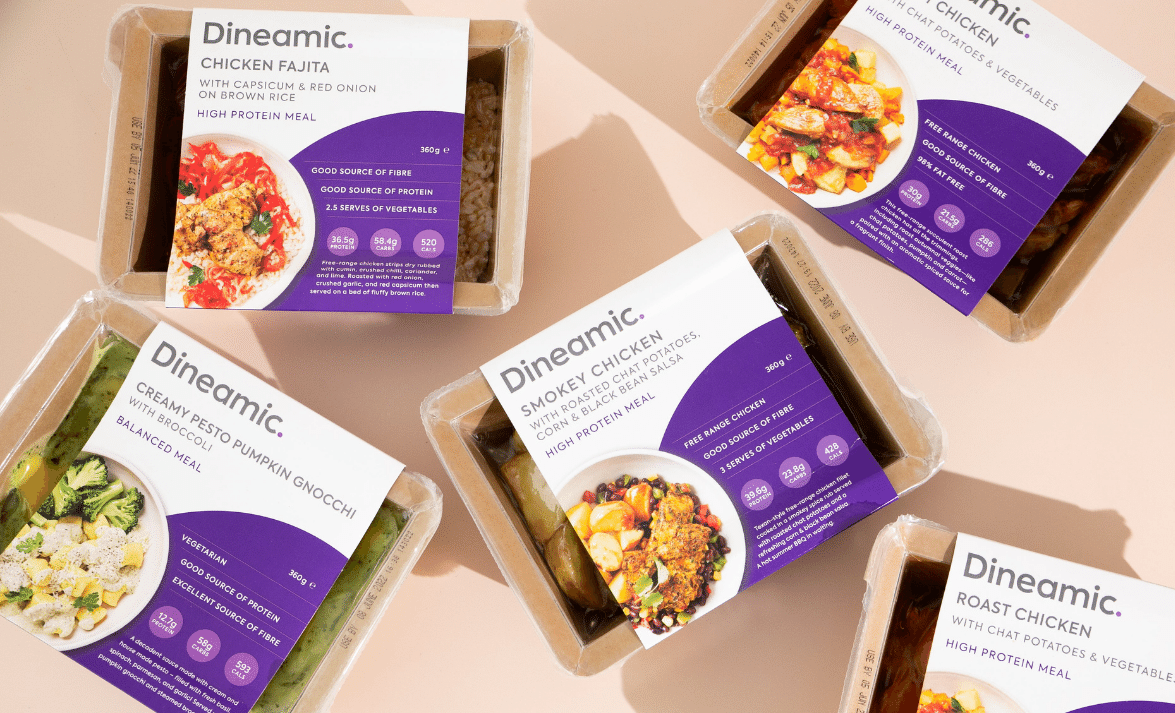
FODMAP Friendly
Dineamic – Low FODMAP Meals
Dineamic creates highly nutritious, ready-made meals for individuals following a low FODMAP diet. Dineamic uses …
NSW, VIC, ACT, QLD, WA

FODMAP Friendly
Dineamic creates highly nutritious, ready-made meals for individuals following a low FODMAP diet. Dineamic uses fresh, wholefood ingredients in each …
NSW, VIC, ACT, QLD, WA
5.0 ![]()
$11.50/serve
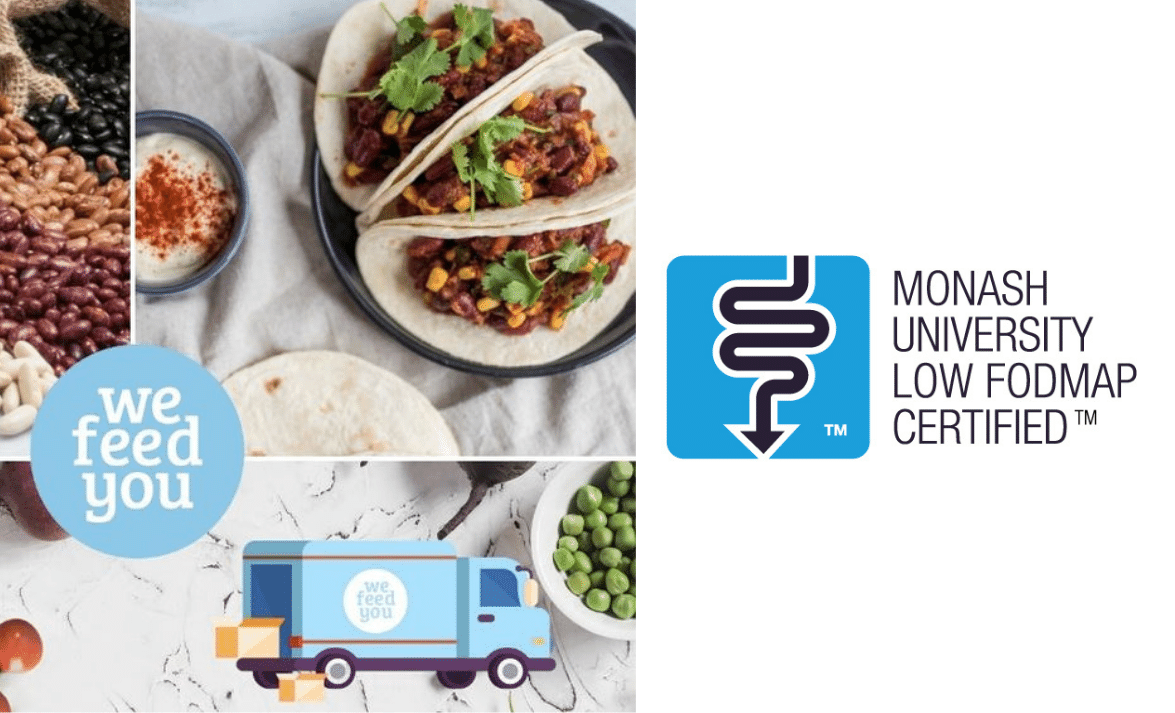
Low FODMAP Certified
We Feed You – Low FODMAP Meals
We Feed You create healthy, ready-made meals delivered frozen. Meals are prepared by chefs and Nutritionists and use high-quality, local …
NSW, VIC, ACT, QLD

Low FODMAP Certified
We Feed You create healthy, ready-made meals delivered frozen. Meals are prepared by chefs and Nutritionists and use high-quality, local …
NSW, VIC, ACT, QLD
5.0 ![]()
$11.95/serve
What is the low FODMAP diet?
FODMAPs short for, fermentable oligosaccharides, disaccharides, monosaccharides, and polyols are a collection of short-chain carbohydrates (or sugars) found naturally occurring in an array of foods such as fruits, vegetables, nuts, legumes, processed foods etc. These sugars can cause a trigger in symptoms for Irritable Bowel Syndrome (IBS) sufferers, due to the sugars not being able to be entirely digested or absorbed in our intestines. When the FODMAPs hit the small intestine water is naturally attracted, following through to the large intestine where the FODMAPs become fermented by the gut bacteria which in turn creates gas. The mix of water and gas can cause discomfort due to the expansion caused in the intestinal walls, especially creating sensitivities and discomfort in IBS sufferers (monashfodmap, 2021).
The low FODMAP diet limits foods that have been found to aggravate the gut and cause IBS symptoms, and priortises foods that are classified as low FODMAP. Foods limited include garlic, onion, apples and most legumes, and foods that are included on a low FODMAP diet include eggs, tofu, hard cheese, wholegrains like rice and oats and vegetables such as tomatoes and potatoes.
If you are undertaking a low FODMAP diet, it is important to seek the advice of a dietician or healthcare practitioner.

Best low FODMAP meal delivery services
We Feed You have teamed up with Monash University Australia to create certified low FODMAP ready-made meals. They are the first ready-made meal provider in Australia to hold this certification. Meals are prepared by chefs and Nutritionists and use high-quality, local produce and are delivered frozen, to your door.
We Feed You have the largest range of low FODMAP meals available on the markets, with over 30 meals on their menu to choose from, including a range of snacks. We Feed You takes the guess work out of meal planning and gives you the confidence to eat well whilst ensuring you stick to a low FODMAP diet.
Meals start from $11.95 and snacks start from $10.50.
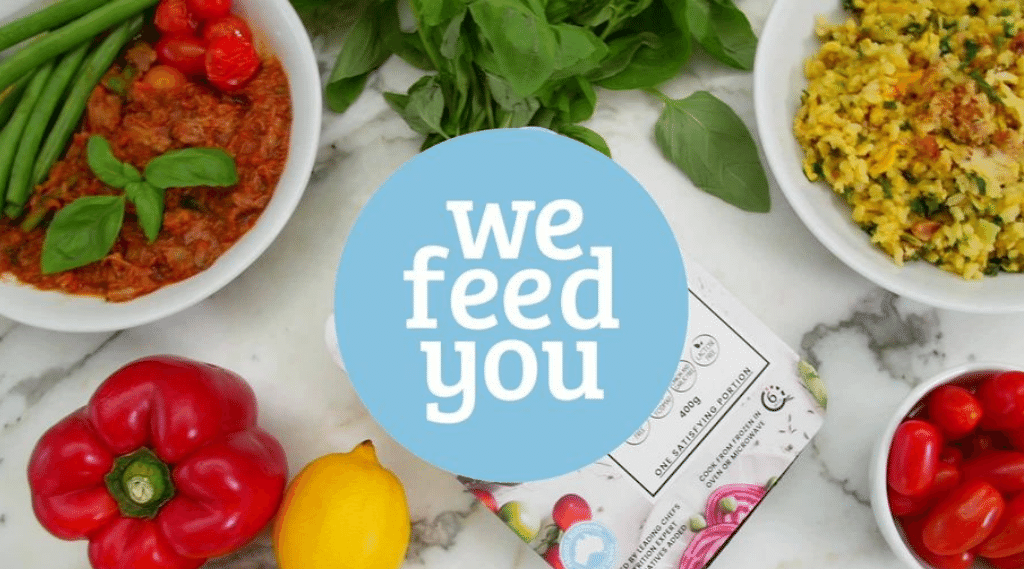
A Nutritionist's experience of low FODMAP meals
As a Nutritionist, I know finding low FODMAP ready-made meals can be a challenge, which is why I was excited to try We Feed You’s range of frozen meals.
We Feed You’s range of nearly 50 frozen, ready-made meals, including Monash University Low FODMAP Certified options, are crafted by experienced chefs, and feature high-quality, local ingredients without added preservatives, fillers, or stabilisers.
We Feed You meals range from $11.95 – $14.95 (or $8.96-$13.96 with the rewards program) for one serve, and $15.00 – $17.00 for the ‘we feed two’ options. Whilst these meals are higher in cost compared to competitor Dineamic who also offer a range of low FODMAP meals starting from $11.50, We Feed You’s focus on using high-quality ingredients to create nutritionally balanced meals justifies the price.
I tried five meals in total. Of these meals, the protein content was lower than expected, between 9g-19g. There was an adequate amount of carbohydrates included in each meal, derived from wholefood sources including sweet potato, pumpkin and brown rice, and there was an excellent selection of vegetables with each meal; at least four different varieties. The meals themselves were delicious – by freezing the meals directly after cooking, We Feed You have captured all the flavours and freshness of their ingredients, resulting in a high-quality readymade product
While I found the portion sizes didn’t suit everyone and some meals were lower in protein, the convenience and nutritional quality made We Feed You a great option for those looking for low FODMAP meal options.
To read my full review of We Feed You, click here.
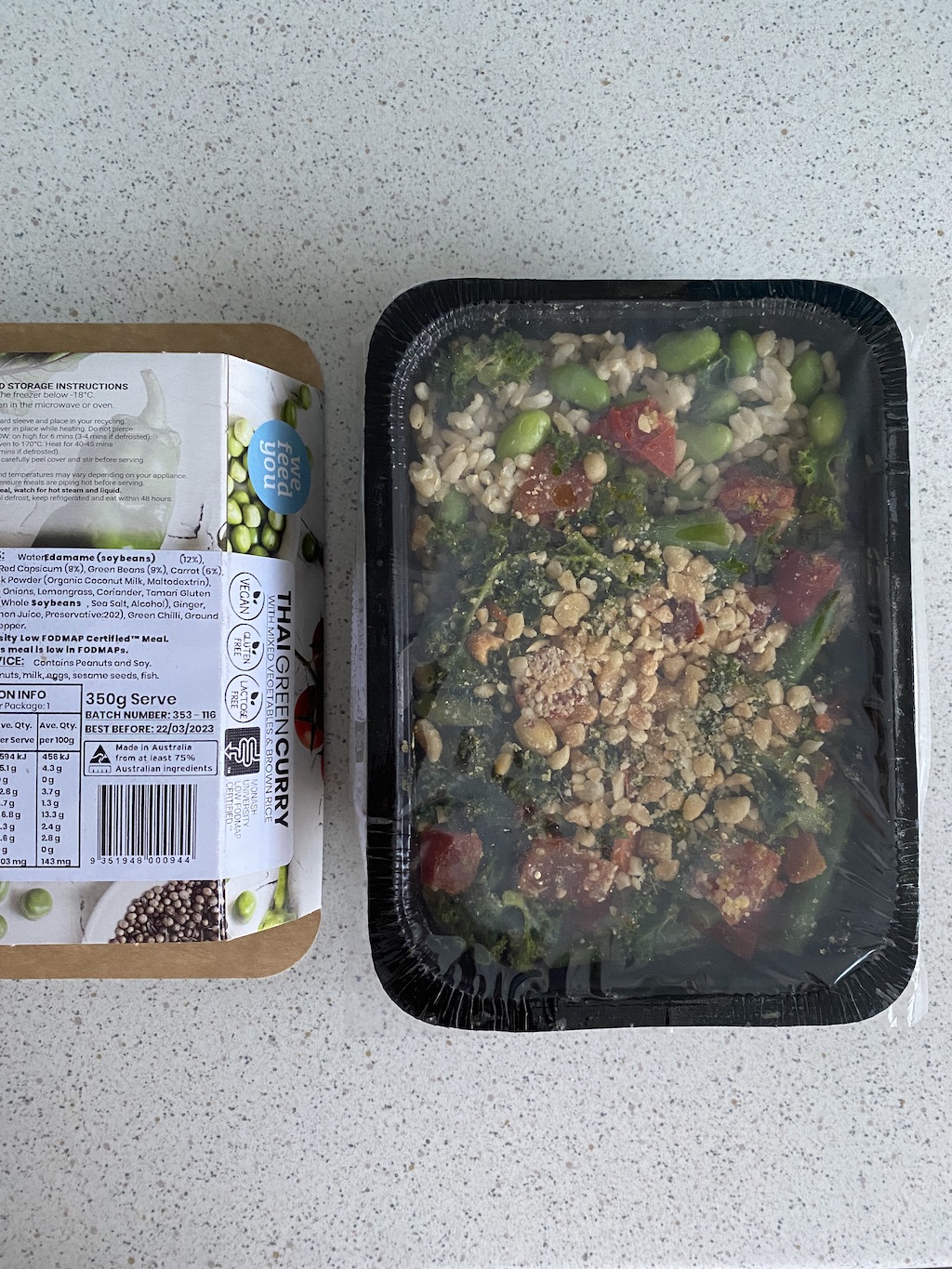
How to choose the right low FODMAP meal service for you

Choosing the right Low FODMAP meal service can make following a low FODMAP diet simpler and more convenient. Here’s how to choose the one that best suits your needs:
Understand low FODMAP labeling:
- Certified Low FODMAP: Ensure the service offers Monash University or FODMAP Friendly certified meals, which guarantee the meals meet Low FODMAP standards.
Customisation:
- Meal Customisation Options: Some services allow you to remove or swap ingredients that may trigger your symptoms. If you have other dietary restrictions (e.g., gluten-free or vegan), look for services that can accommodate those as well.
Compare cost and convenience:
- Pricing and Delivery: Compare pricing to see which service fits your budget. Some providers offer bulk discounts or subscription plans for ongoing deliveries.
- Delivery Areas: Make sure the service delivers to your location and offers a delivery schedule that fits your needs (e.g., weekly, bi-weekly
Are low FODMAP diets healthy?

The FODMAP diet is intended for those with diagnosed IBS or relevant conditions which may assist in managing and identifying dietary triggers which exacerbate conditions. It is not intended as a long-term diet due to the restrictive nature.
Removing foods or limiting foods without absolute need can be harmful to your health, leading to nutrient deficiencies and poor health outcomes. It is important to not make any dietary changes without consulting with a trusted medical professional. If you have specific concerns around whether you may be suffering from gastrointestinal symptoms consult with a doctor to investigate further (monashfodmap, 2021).
Removing foods or limiting foods without absolute need can be harmful to your health, it is important to not make any dietary changes without consulting with a trusted medical professional. If you have specific concerns around whether you may be suffering from gastrointestinal symptoms consult with a doctor to investigate further (monashfodmap, 2021).
Foods to Include and Avoid on a Low FODMAP Diet:
- Foods to Include: Lean proteins, rice, oats, zucchini, spinach, bananas, strawberries, and gluten-free grains.
- Foods to Avoid: Onions, garlic, beans, apples, pears, wheat, and high-lactose dairy products.
Tips for Transitioning to a Low FODMAP Lifestyle:
- Plan Your Meals: Meal planning is key to ensuring you stick to the diet without feeling restricted. Use trusted Low FODMAP recipe sources and meal services to simplify your process.
- Read Labels Carefully: Many processed foods contain hidden FODMAPs, so it’s important to check ingredient lists before purchasing.
- Consult a Dietitian: A registered dietitian can help guide you through the elimination and reintroduction phases, ensuring you get the nutrients you need while managing your symptoms.
Pros & Cons of low FODMAP meal delivery services
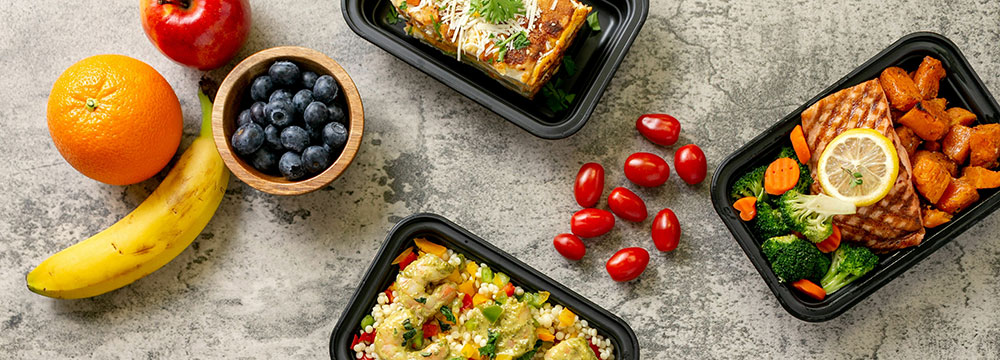
Low FODMAP Pros
- Highly Researched and evidence-based - For those following a FODMAP diet under the supervision or guidance of a health professional, there is a lot of reputable research to support the diet.
- May alleviate IBS symptoms - For those who are following a FODMAP diet, many who follow a strict protocol will notice lesser symptoms with the dietary restrictions.
- May help identify dietary triggers - For those who are unaware of their dietary triggers, a FODMAPs diet may help you figure this out i.e. lactose intolerance, fructose intolerance.
- Resources and professional interventions available - There are many resources, materials, apps and health professionals who focus on FODMAP protocols. If you are struggling to find foods or meal options our provider list is a great place to start.
- Convenient - For many individuals who suddenly find themselves needing to follow a low FODMAP diet, knowing how to prepare nutritious low FODMAP meals can be challenging. Ordering from a meal service that does the work for you, is a convenient option that provides you with confidence.
Low FODMAP Cons
- Restrictive and hard to adhere to - FODMAPs isn’t a long-term diet and is extremely restrictive. This can make adherence to the diet difficult, as well as shopping and creating meals.
- Not a long-term solution - As many IBS sufferers find their symptoms alleviate or lessen on the FOMAPs diet they often face reluctance coming off of the diet. Reintroduction of foods and management of triggers needs to be visited under professional guidance.
- Socially alienating - Adhering to a FODMAPs diet can be socially restrictive as most restaurants do not have a FODMAP friendly menu. If you are following a FODMAPs diet you may need to call restaurants or cafes ahead of time to cater to your needs.
- Not suitable for those without a diagnosis - This diet is not suitable for most people and needs to be followed under the guidance of a health professional. If you do not have a diagnosis seek a medical opinion first.
- Expensive - Ordering from a low FODMAP meal service can be an expensive option due to the assumed convenience and tailored recipes, often crafted by experts.
Key factors when comparing low FODMAP meal delivery options
FODMAP categories
(low – high FODMAPs)
It’s important to analyse each providers standard of how they classify and cater to FODMAPs. Some providers may align to a low FODMAP requirement which means their meals may include ingredients that you are required to avoid altogether. It’s important to investigate where the provider sets their benchmark with FODMAPs.
Dietician Approved or Designed Meals
Ensure you are choosing meals from a provider who has meals designed or approved by Dieticians or Nutritionists. This is a great step in knowing the menu has checked for nutrient density and meets low FODMAP requirements. For additional assurance, check to make sure the meals are certified by the Monash University of Australia.
Customisable
Not all providers will offer customisation such as tailoring a meal to be vegan or allergy-friendly. You must look into each provider or reach out for further clarification if there is something you cannot eat.
Quality of Ingredients
As FODMAP meals are restrictive it’s important to ensure your receiving optimal nutrients from your diet where possible. Look for meal providers that prioritise high quality, fresh ingredients and provide adequate vegetables.
Low FODMAP Delivery FAQs
We Feed You currently deliver to Melbourne, Sydney and Canberra, and most parts of Victoria and New South Wales.
Dineamic also deliver to Sydney, including some regional areas.
This will depend on the provider; most providers are creating a low FODMAP meal to suit the majority of consumers undertaking this diet. Understandably as the consumer continues through the dietary stages individual changes may be made or tailored under the advice of a health professional, such as reintroducing certain foods. You will need to check with the providers individually if they can tailor to your requests, otherwise, they may have extras, sides or an add-on section that could be suited to your wants.
We Feed You offer vegan-friendly low FODMAP meals such as their Marinated Eggplant & Noodles with Zucchini and Edamame.
For more information on vegan providers, you can explore our vegan category.
Wholesomeness also offer vegan and low FODMAP meals.
We Feed You is a popular FODMAP meal service in Australia, with meals certified by the Monash University of Australia. They have one of the larger menus designed by expert nutritionists and cooked by world-class chefs, delivering to Melbourne, Sydney and Canberra, and most parts of Victoria and New South Wales.
There are many high FODMAP foods. Below we’ve included a small group of these:
The most dominant FODMAPs found in fruit are sorbitol and excess fructose some of these high fructose fruits are apples, pears, mangoes, cherries, figs, pears, watermelon and dried fruit.
Fructans and mannitol are the main FODMAPs found in vegetables. Some of these high fructan vegetables include artichoke, garlic, leek, onion and spring onion. Vegetables high in mannitol are mushrooms, cauliflower and snow peas.
High fructans are present in grains and cereal foods such as wholemeal bread, rye bread, muesli (wheat based), wheat pasta etc.
High amounts of lactose need to be avoided on FODMAP diets. Foods rich in lactose include soft cheeses, milk and yoghurts (Monash University, 2021).
Before making any changes to your diet it is important to consult with a dietitian before commencing a FODMAP diet. Due to its restrictive and intended acute intervention, the diet needs to be well-executed and monitored with a supportive practitioner. For more information on working with a dietitian or if a FODMAP diet is right for you talk to your doctor about these options.
Irritable Bowel Syndrome or IBS affects many people and exerts an array of symptoms some include abdominal pain, irregular bowel movements, mucous in stools, alternating diarrhoea and constipation. Causes of IBS remain unknown however many factors may trigger episodes such as stress, diet, infection, change in routine, medications etc.
There is no known cure for IBS, however, there is importance in management and preventative measures where possible – this includes identifying potential dietary triggers (Canavan et al. 2014).
If you are experiencing any of the above symptoms or suspect you may be suffering from IBS it is important to seek medical advice and work alongside a trusted health professional. Many medical conditions may exert similar symptoms it’s important to always seek medical advice before making any lifestyle or dietary changes.
The Low FODMAP diet is designed to manage digestive symptoms, not specifically for weight loss. However, many low FODMAP meal options focus on whole, minimally processed ingredients, which can support a healthy body composition. If weight loss is your goal, consult with your healthcare practitioner before making any dietary changes.
Barrett (2017). “How to institute the low-FODMAP diet”.
https://pubmed.ncbi.nlm.nih.gov/28244669/
Canavan et al (2014). “The epidemiology of irritable bowel syndrome”.
https://www.ncbi.nlm.nih.gov/pmc/articles/PMC3921083/
Gibson and Shepherd (2010). “Evidence-based dietary management of functional gastrointestinal symptoms: The FODMAP approach”.
https://onlinelibrary.wiley.com/doi/full/10.1111/j.1440-1746.2009.06149.x
Monash University (2021). “FODMAPs and Irritable Bowel Syndrome”.
https://www.monashfodmap.com/about-fodmap-and-ibs/
Monash University (2021). “Where FODMAPs are found in foods”.
https://www.monashfodmap.com/about-fodmap-and-ibs/high-and-low-fodmap-foods/